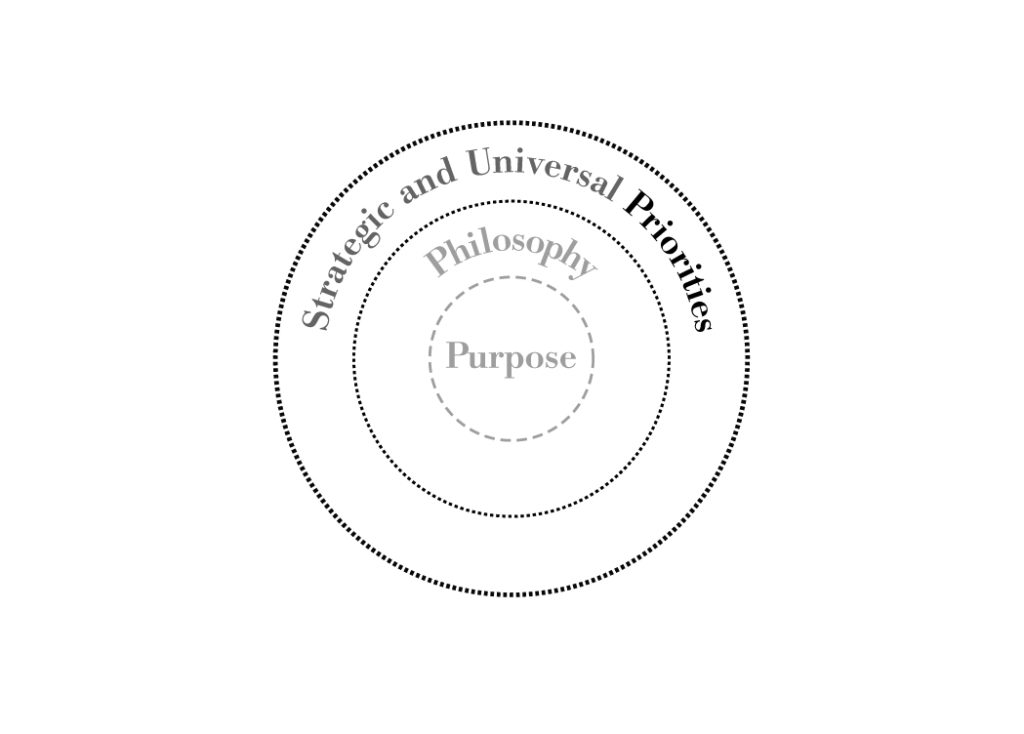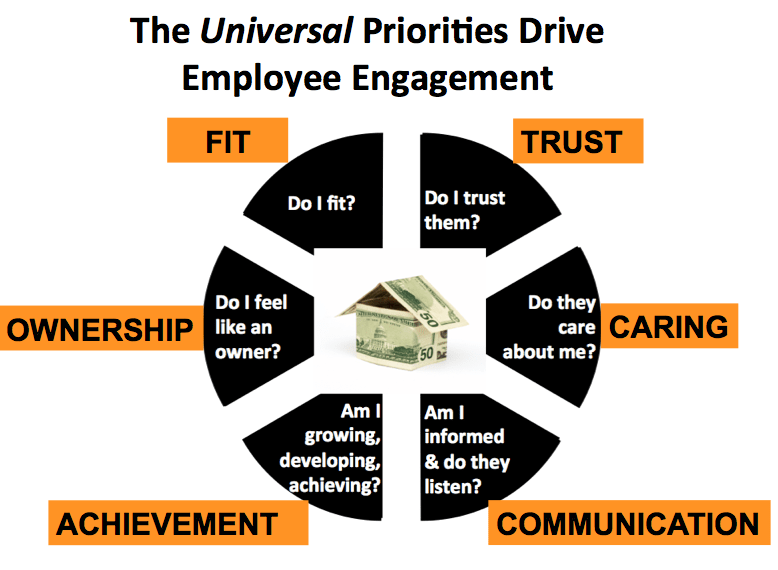Universal Priorities promote employee engagement
One layer outside of Purpose and Philosophy are Priorities. To clarify, there are two types of Priorities: strategic Priorities and universal Priorities.

The universal Priorities of the organization are the values that promote employee engagement. Human beings have basic needs—no matter where they work. Therefore, these values are important to all organizations. There may be variations in what is deemed most important, depending on the organization or the job. But all of these Priorities matter.
Understanding and practicing these Priorities is key to driving employee engagement. Living these Priorities promotes a culture of engagement.
These Priorities nurture an enriching and motivating workplace that stimulates exceptional efforts and heightened loyalty. To clarify, they support the wellbeing of the people who work for the company.
In an ideal world, these values would not be differentiators. But organizations do not uniformly live these values. Therefore, the presence of these values enhances the competitiveness of the organization. And in contrast, the absence of these values deters an organization from achieving its potential.
Universal Priorities: Fit, Trust, Caring, Communication, Achievement and Ownership
The universal Priorities consist of the following values: fit, trust, caring, communication, achievement, and ownership. Actions related to one Priority will often impact others. For example, inadequate communication from top leadership can create a workplace where employees feel the leadership does not care about them.
Therefore, the presence or absence of any one of these Priorities can have a broad impact on an individual’s engagement. Likewise, it will impact the culture of the organization.
Identify the Priorities that you need to focus on using an employee engagement survey. Then, based on the key drivers, build those values into your Core Culture.
Build a culture of engagement
Engagement is a responsibility of everyone—the individual and the organization. Human beings seek to live an engaged life. To sum up, organizations that live by these values create cultures of excellence.
Listed below are the universal Priorities. To clarify, for more details, select the links below.
- FIT: Do I fit?
- TRUST: Do I trust them?
- CARING: Do they care about me?
- COMMUNICATION: Do they inform me? Do they listen to me?
- ACHIEVEMENT: Am I growing, developing, achieving?
- OWNERSHIP: Do I feel like an owner?
Work is more than an economic transaction. Therefore, addressing the social and human side of the employee is key to achieving optimal performance.
Contact Sheila to uncover your universal Priorities
Have any questions? Contact Sheila to help you identify your Priorities. To clarify, her management consulting firm Workplace Culture Institute is based in Atlanta, Georgia. She serves clients globally. Of course, use the Contact Form to email Sheila.
